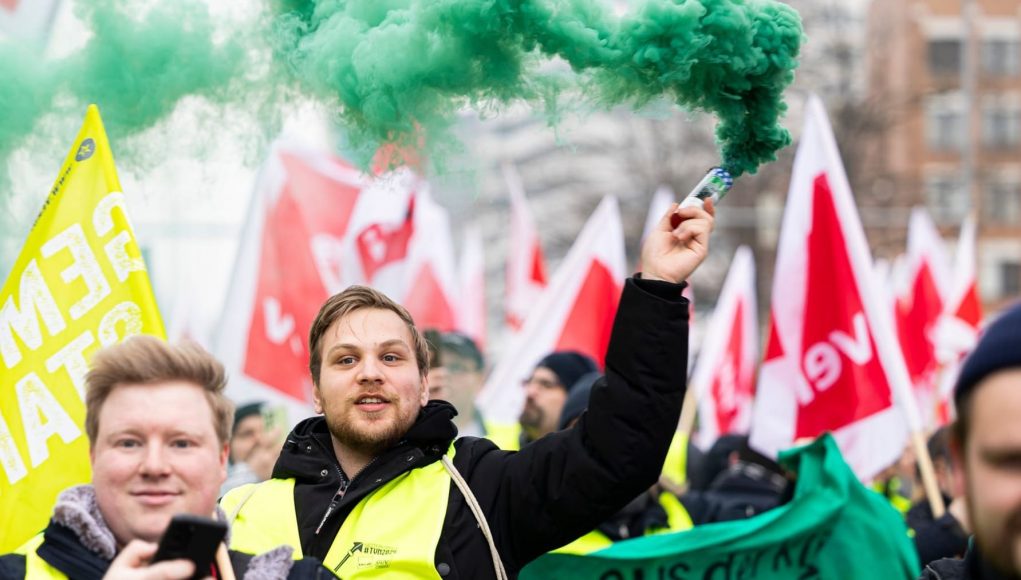There is no strike in local transport in Bavaria. In all other federal states, however, employees have stopped working – amid criticism from employers.
In almost all of Germany, local public transport workers are on strike on Friday. In collective bargaining negotiations in the federal states, Verdi is primarily demanding shorter working hours, a 35-hour week or more days off. However, the requirements vary depending on the federal state.
The local employers' associations (KAV) in the federal states are generally critical of the strikes. In many places there has only been one round of negotiations and in many places employers do not want or cannot respond to the demands of the Verdi union. In many federal states there could be a risk of further strikes if a solution is not found. But where does Verdi demand something? And what do the KAV say about it? An overview.
Baden-Württemberg
In Baden-Württemberg, KAV managing director Sylvana Donath says: “From March onwards, employees will benefit from historically high salary increases of over 12 percent.” Implementing the demands would increase the average gross wage for employees in driving services to more than 5,200 euros. According to Donath, that would be “far from any reality”.
Berlin
In Berlin, the BVG and the Municipal Employers' Association (KAV) appeared “irritated” by Verdi's actions in a statement. “In view of the constructive discussions, we consider warning strikes in Berlin to be inappropriate.” Verdi is demanding, among other things, 33 vacation days for all employees, a reduction in unpaid breaks to a maximum of 30 minutes per shift in driving service and additional vacation days for night shift work.
Brandenburg
In Brandenburg, Verdi demands surcharges from the first overtime hour and a paid day off at another time for work on public holidays. In addition, it's about 20 percent, or at least 650 euros more, for local transport employees. The KAV states in a press release that it cannot understand the strike. Employers have promised both wage increases and changes to the general conditions. The strikes are “about a demonstration of power by the ver.di union.”
Bremen
In Bremen, the spokesman for Bremer Straßenbahn AG (BSAG), Andreas Holling, also expressed criticism according to the medium “buten un binnen”: “From our point of view, the strike is incomprehensible, especially at this point in time.” There has only been a collective agreement, and the BSAG transport association has not yet submitted an offer in the negotiations.
Embed
Hamburg
In Hamburg, Verdi is calling for a 35-hour week with full wage compensation, a limit on stressful lengths of service, 32 days of vacation and higher allowances for work at “unfavorable times.” The Hamburger Hochbahn had submitted an offer that included more days off. According to the company, this is more attractive than shortened weekly working hours. On this point, Hochbahn could not approach Verdi in the next round of negotiations.
Embed
Hesse
In Hesse, Verdi is also calling for, among other things, a 35-hour week with full wage compensation and an increase in the 13th monthly salary to 100 percent. In addition, the bottom three salary levels are to be eliminated so that job starters can start their careers with around 200 euros more in salary. There was no statement from KAV Hessen on the strike on Friday.
Mecklenburg-Western Pomerania
The KAV also criticizes the strike in Mecklenburg-Western Pomerania. KAV managing director Carola Freier said on Thursday that the strike was disproportionate. The union cultivates its image at the expense of citizens. The employers have already announced an offer for the next round of negotiations on February 21st.
































